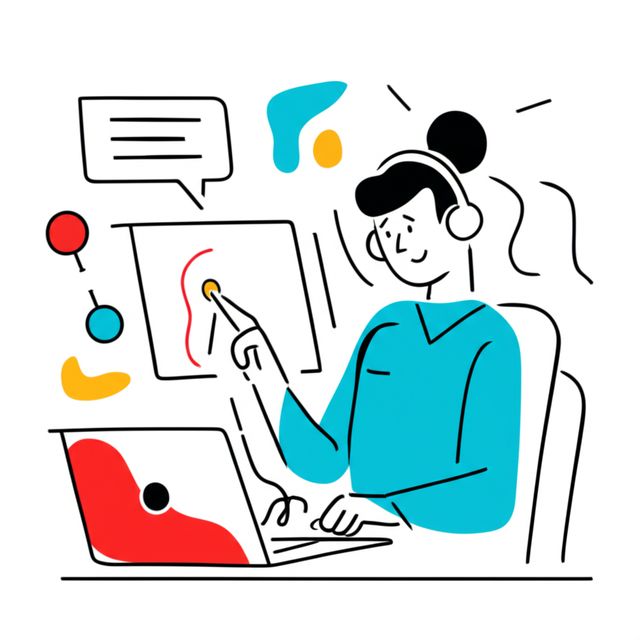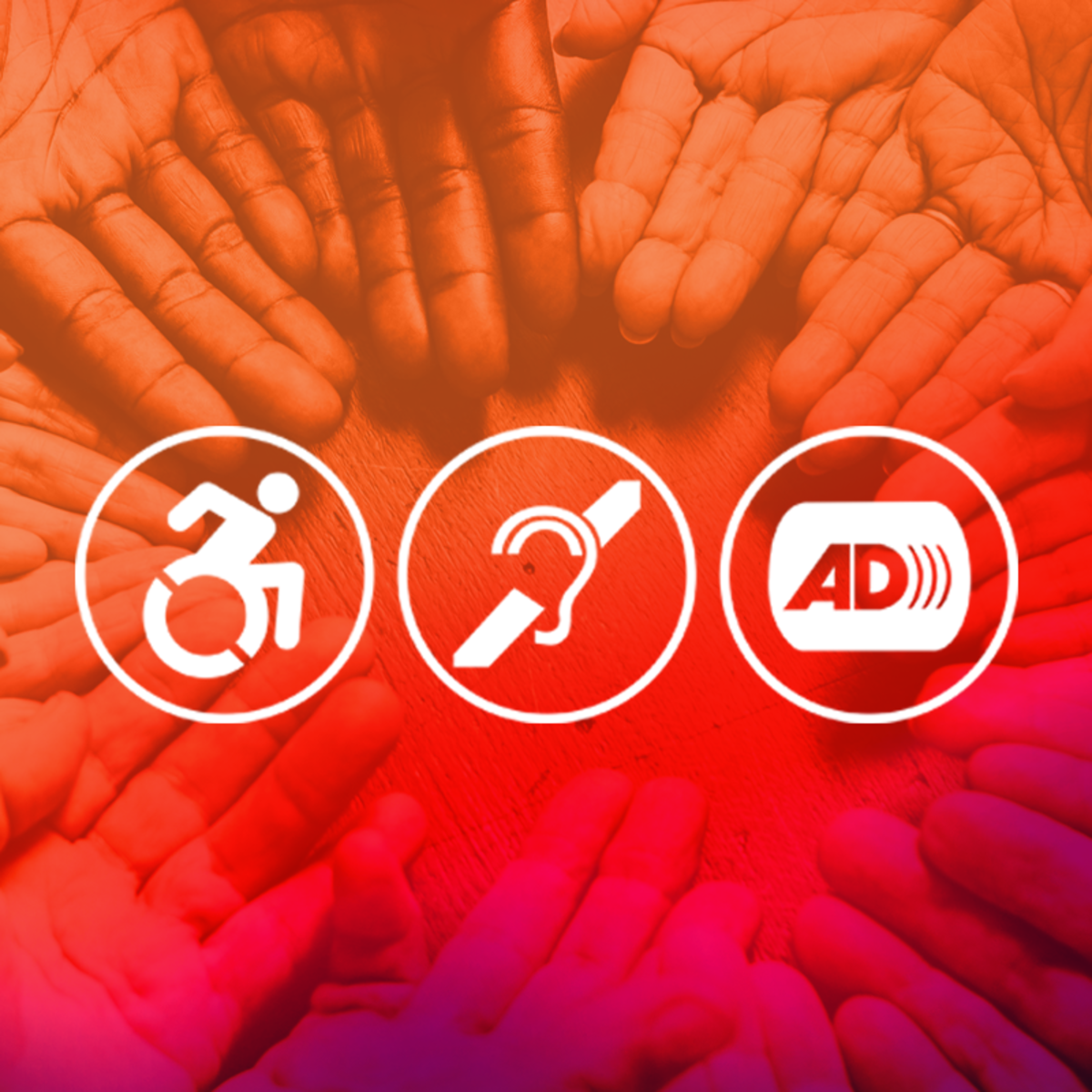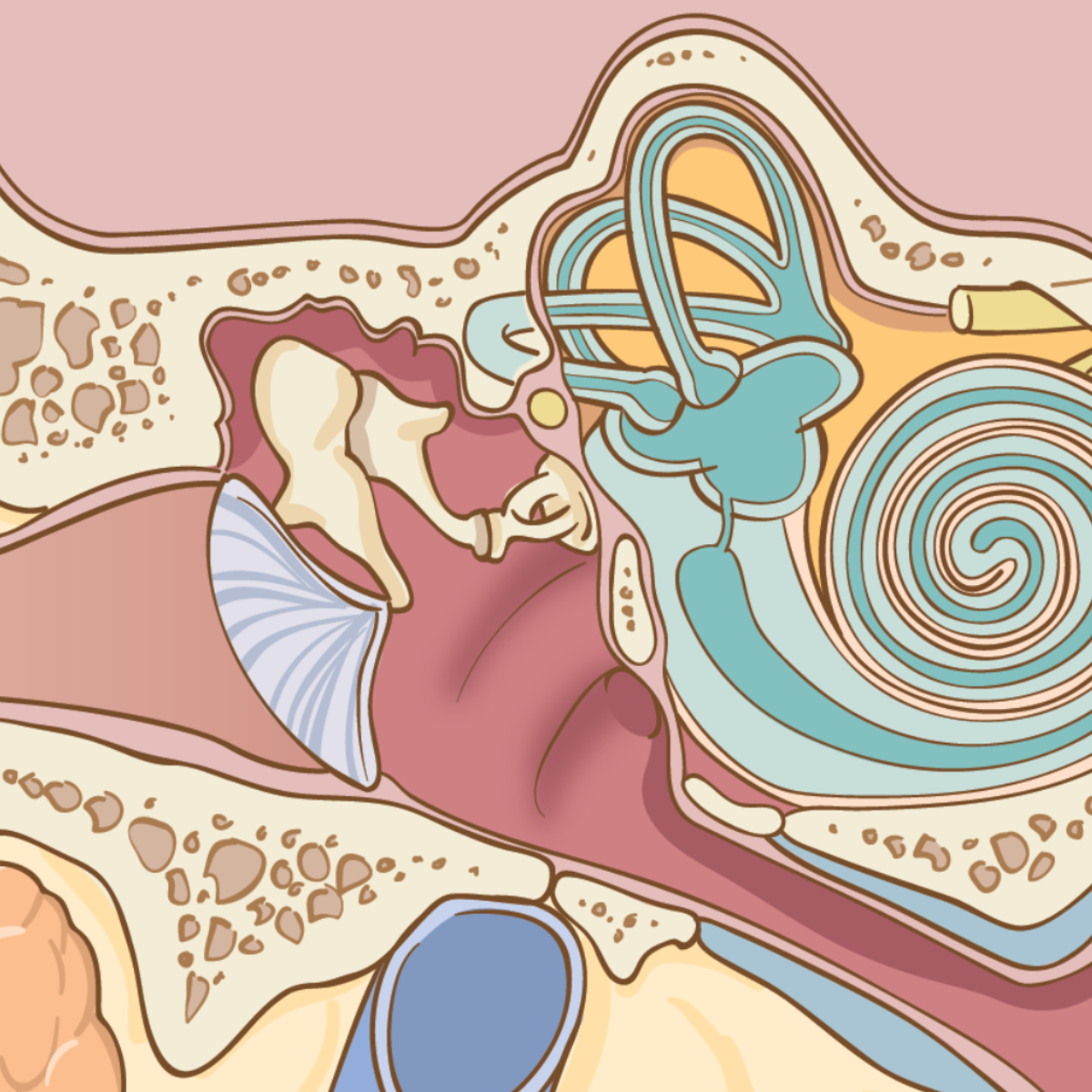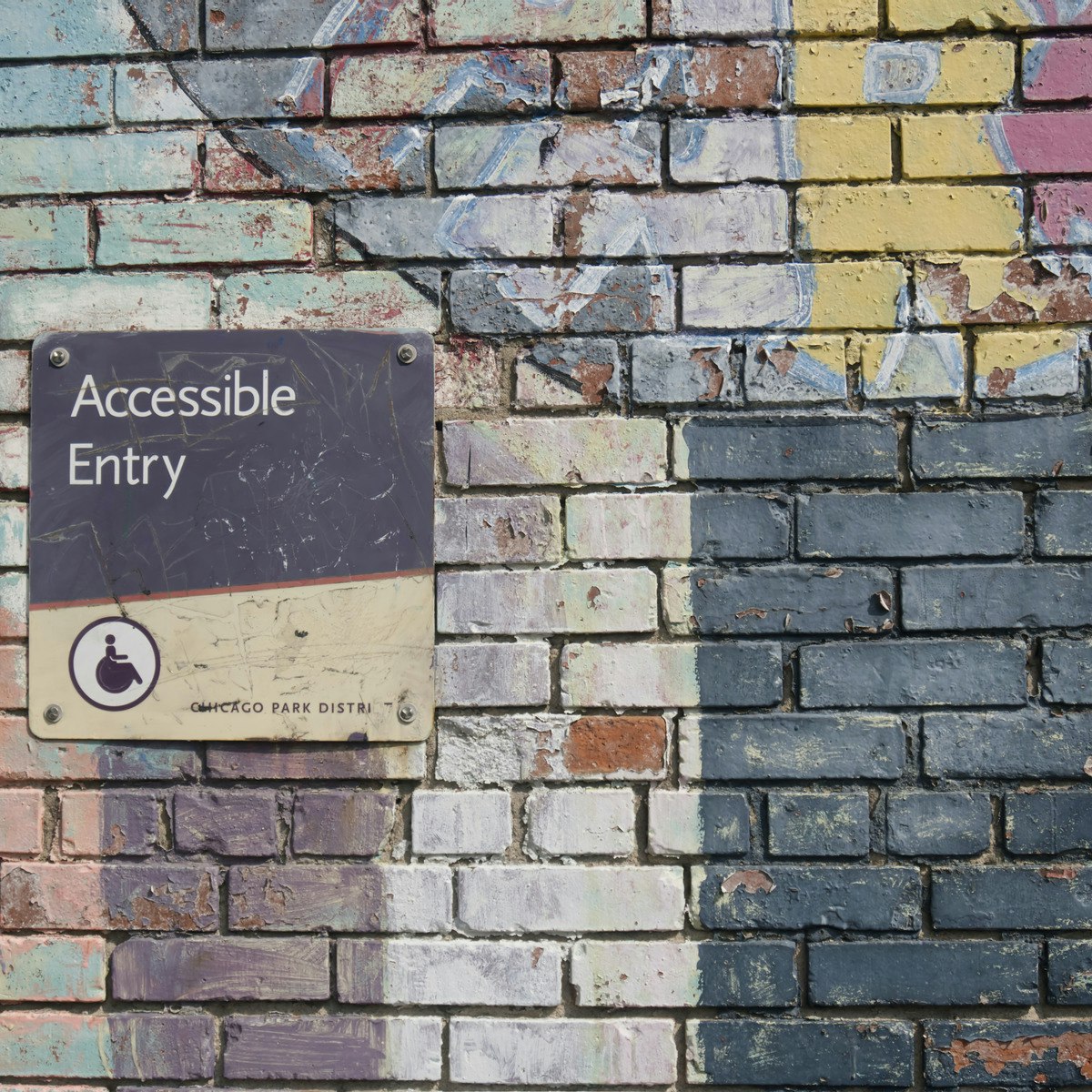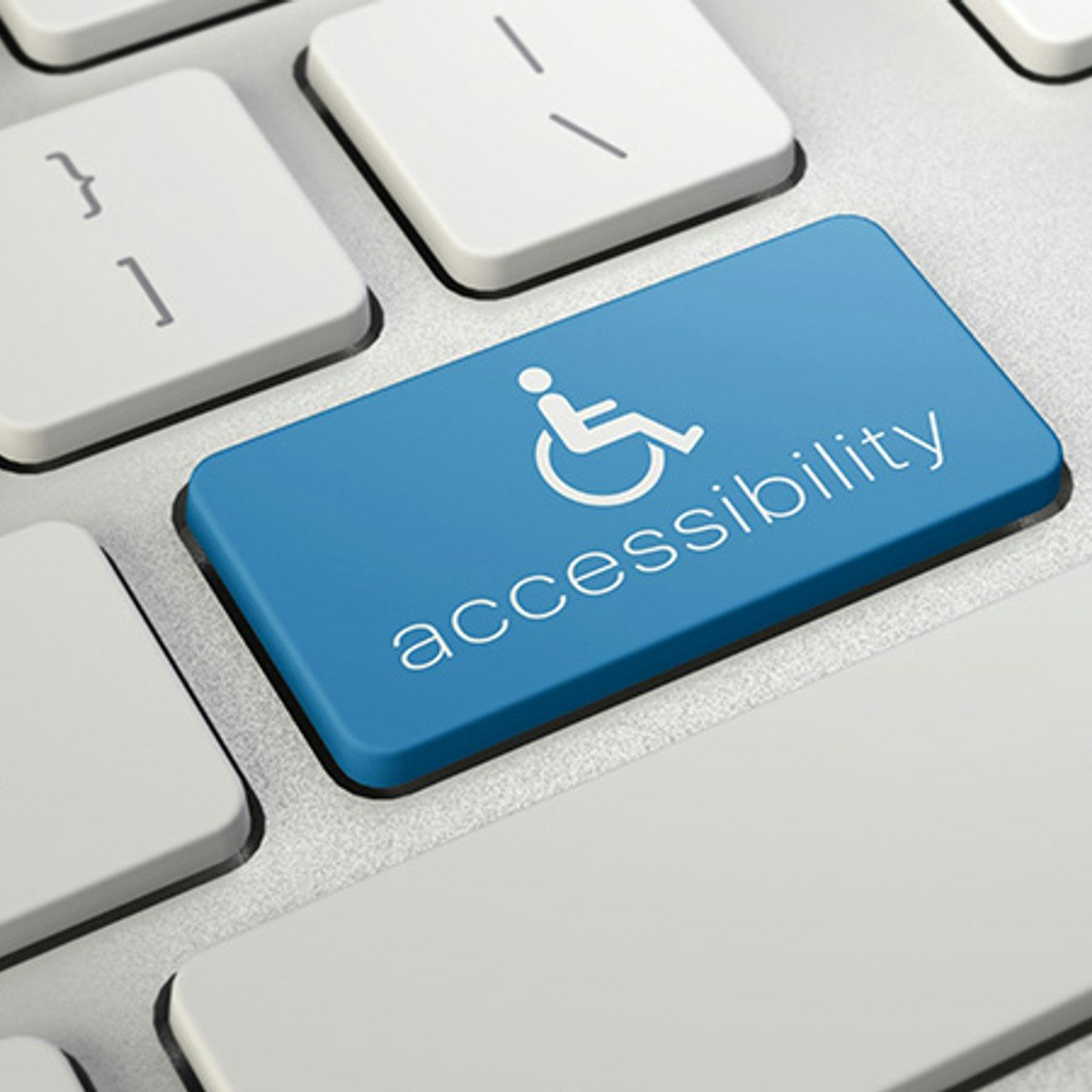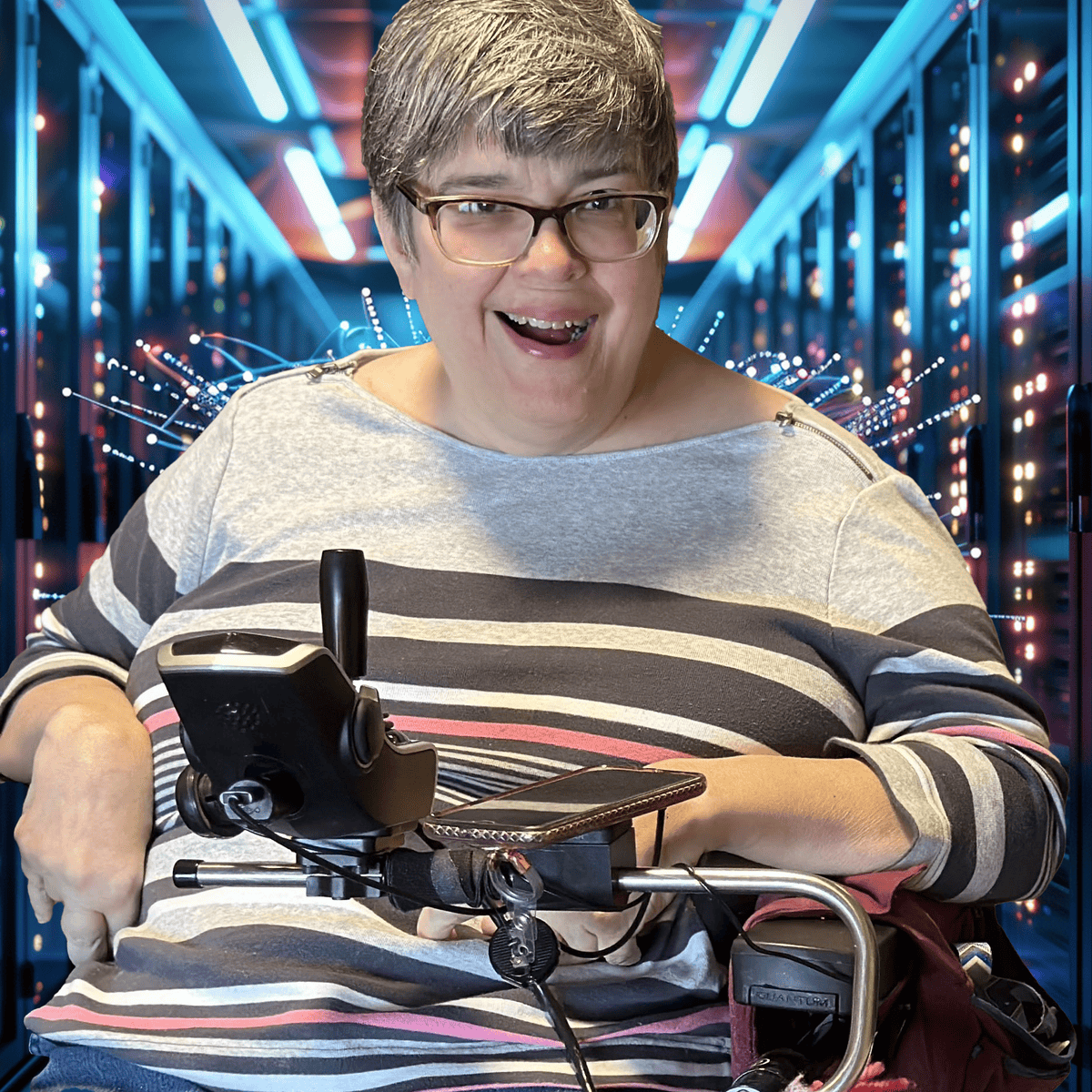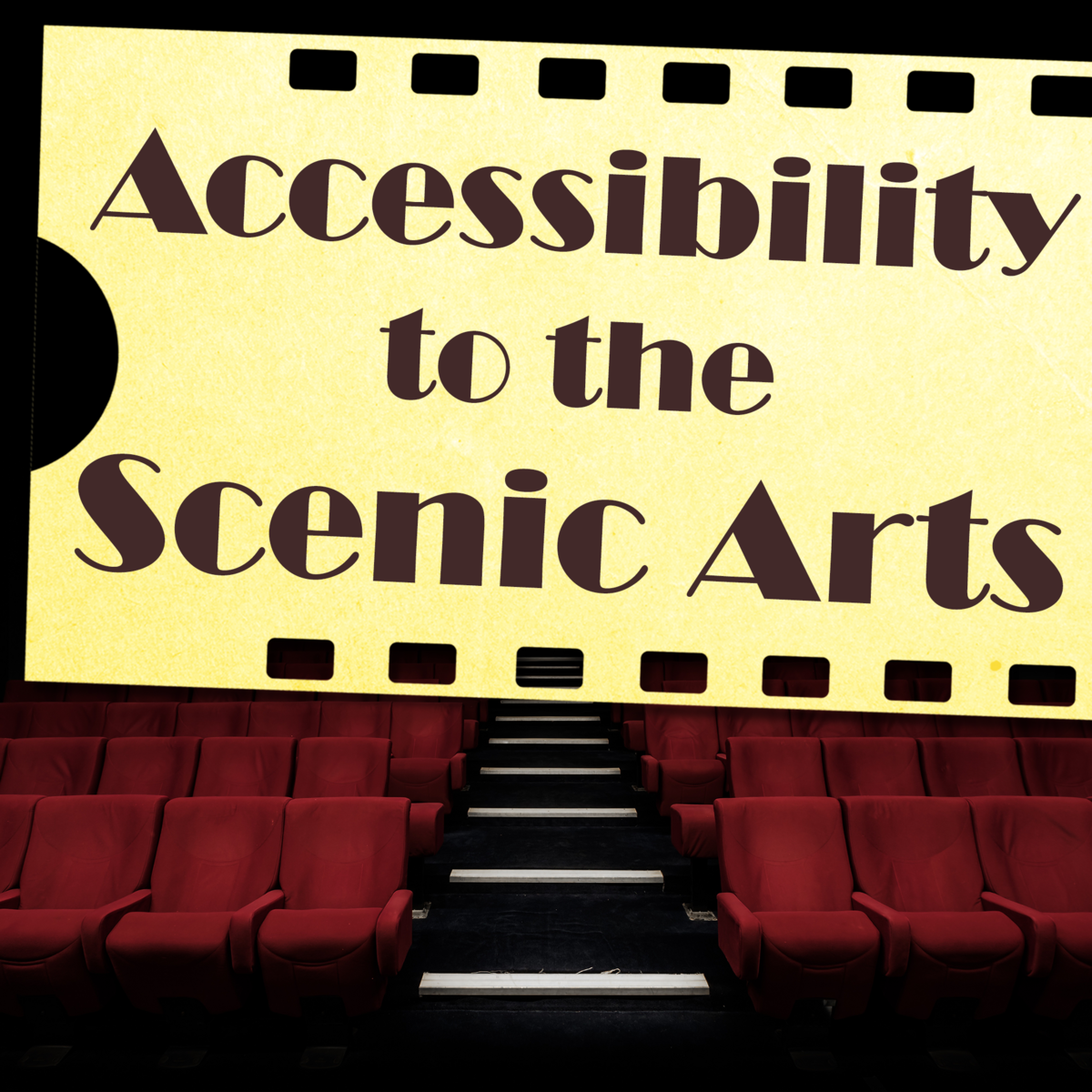Assistive Technology Specialist
Comprehensive Guide to Becoming an Assistive Technology Specialist
An Assistive Technology (AT) Specialist is a professional dedicated to helping individuals with disabilities gain independence and improve their quality of life through the use of specialized tools and technologies. This rewarding career path involves assessing the unique needs of clients, recommending appropriate assistive devices, and providing training on how to effectively use these technologies. It's a field that beautifully melds technology with human services, education, and healthcare, offering a chance to make a tangible difference in people's lives.
The core mission of an AT Specialist revolves around bridging the gap between technology and accessibility. This might involve working with a student who has a learning disability to find software that reads text aloud, thereby enhancing their academic growth independently. Or, it could mean supporting an older adult with a long-term medical condition by introducing them to devices that allow them to live more comfortably and safely in their own homes. The impact of this work is profound, empowering individuals to communicate, learn, work, and participate more fully in their communities.
The field of assistive technology is dynamic and continually evolving, driven by advancements in areas like artificial intelligence and smart devices. This means that AT Specialists are lifelong learners, constantly updating their knowledge to provide the best possible solutions for their clients. If you're passionate about technology and have a strong desire to help others overcome challenges, a career as an Assistive Technology Specialist could be an incredibly fulfilling choice.
What is an Assistive Technology Specialist?
At its heart, an Assistive Technology Specialist is a problem-solver and an enabler. They work with individuals across the lifespan who experience a wide range of disabilities, including physical, sensory, cognitive, and learning challenges. The primary goal is to identify and implement technological solutions that help these individuals perform everyday tasks, achieve greater independence, and enhance their overall well-being.
Imagine someone who has difficulty speaking. An AT Specialist might introduce them to an Augmentative and Alternative Communication (AAC) device, which can range from a simple picture board to a sophisticated speech-generating computer. For an individual with a visual impairment, the specialist might recommend and train them on screen reader software that vocalizes on-screen text, or a Braille device. The "technology" in assistive technology is broad, encompassing everything from low-tech solutions like pencil grips and magnifying glasses to high-tech devices like prosthetic limbs and eye-tracking systems.
This career is inherently rewarding because it directly contributes to improving people's lives. The excitement comes from seeing an individual gain a new level of independence, whether it's a child participating more actively in their classroom, an adult being able to perform their job more effectively, or an older person maintaining their ability to live at home. It's a field that combines technical know-how with a deep sense of empathy and a commitment to inclusivity.
Defining the Role and Scope
An Assistive Technology Specialist is a professional who evaluates the needs of individuals with disabilities and helps them select, acquire, and use assistive technology devices and services. Their work is multifaceted, involving not just the technology itself, but also understanding the individual's specific goals, environment, and personal preferences. The scope of their work can span various settings, including schools, hospitals, rehabilitation centers, workplaces, and private homes.
The term "assistive technology" itself is broadly defined as any item, piece of equipment, or product system, whether acquired commercially, modified, or customized, that is used to increase, maintain, or improve the functional capabilities of individuals with disabilities. This means AT Specialists work with a vast array of tools, from simple, non-electronic aids to complex, computer-based systems. Their expertise lies in matching the right technology to the right person to achieve specific outcomes.
This role often requires a collaborative approach, working closely with clients, their families, caregivers, educators, healthcare professionals, and employers. The ultimate aim is to empower individuals by providing them with the tools and strategies they need to overcome barriers and participate more fully in all aspects of life.
The Core Mission: Bridging Technology and Accessibility
The central mission of an Assistive Technology Specialist is to act as a vital link between the ever-evolving world of technology and the fundamental human need for accessibility. They strive to ensure that technological advancements benefit everyone, regardless of their abilities. This involves more than just providing a device; it’s about creating a pathway for individuals to engage with the world in ways that might otherwise be challenging or impossible.
Consider the digital world we live in. For many, navigating websites, using mobile apps, or accessing online information is second nature. However, for individuals with certain disabilities, these digital spaces can present significant barriers. An AT Specialist might work to identify software, hardware, or strategies to make these digital interactions accessible, thereby promoting inclusion and equal opportunity. Their work is grounded in the principle that technology should empower, not exclude.
This mission extends beyond individual consultations. AT Specialists often advocate for broader accessibility, contribute to the design of more inclusive products, and educate others about the importance of universal design principles. They are champions for a world where technology serves to level the playing field and enhance the lives of all individuals.
These courses offer a solid introduction to the principles of web accessibility and inclusive design, which are fundamental to the work of an AT Specialist.
Demographic Groups Commonly Served
Assistive Technology Specialists work with a diverse range of individuals across all age groups and with various types of disabilities. One significant demographic includes individuals with physical disabilities who may require support for mobility, manipulation of objects, or performing daily living tasks. This could involve recommending wheelchairs, adaptive driving controls, or environmental control units that allow a person to operate lights and appliances with voice commands or a switch.
Another key group comprises individuals with sensory impairments, such as those who are blind or have low vision, or those who are deaf or hard of hearing. For visual impairments, specialists might introduce screen readers, magnifiers, Braille devices, or specialized apps for object recognition. For hearing impairments, they may work with hearing aids, cochlear implants, FM systems for clearer sound in noisy environments, or captioning and transcription services.
Individuals with cognitive or learning disabilities also form a substantial portion of the clients served. This can include people with dyslexia, ADHD, autism spectrum disorder, or intellectual disabilities. Assistive technologies in this area might include text-to-speech software to aid reading, speech-to-text for writing, graphic organizers, reminder systems, or specialized educational apps designed to support different learning styles. Furthermore, the aging population increasingly benefits from assistive technologies to maintain independence and quality of life as they experience age-related changes in physical and cognitive abilities.
These courses delve into supporting individuals with specific needs, such as visual impairments or dyslexia, and explore technologies relevant to these groups.
A Brief Historical Look at Assistive Technology
The concept of using tools to aid individuals with disabilities is not new, with early examples like canes and ear trumpets dating back centuries. However, the modern field of assistive technology has seen significant milestones. The invention of Braille by Louis Braille in the early 1800s was a revolutionary development for individuals with visual impairments, providing a standardized system for reading and writing. Similarly, the development of the first electronic hearing aids, made possible by Alexander Graham Bell's work in the late 1800s, marked a major step forward for those with hearing loss.
The 20th century brought further advancements. "Talking books" on phonographs appeared in the 1930s, initially for war-blinded soldiers. The invention of the transistor in 1948 led to smaller, more practical hearing aids. In the 1950s, the Perkins Brailler typewriter made Braille writing more efficient. The advent of computers opened up entirely new possibilities. Screen readers emerged in the 1970s and 80s, and sip-and-puff technology allowed individuals with significant motor limitations to control devices like wheelchairs and computers.
The late 20th and early 21st centuries have witnessed an explosion of innovation, driven by advancements in digital technology, mobile devices, and the internet. From sophisticated speech-generating devices and eye-tracking systems to accessible apps on smartphones and tablets, the range and capabilities of assistive technologies have expanded dramatically. This ongoing evolution continues to create new opportunities for enhancing independence and inclusion.
To understand the broader context of design and its impact on accessibility, these books offer valuable insights.
Key Responsibilities of an Assistive Technology Specialist
The day-to-day work of an Assistive Technology Specialist is diverse and client-centered. A significant part of the role involves direct interaction with individuals to understand their needs, challenges, and goals. This requires not only technical knowledge but also strong interpersonal and communication skills to build rapport and effectively gather information.
Beyond client assessments, specialists are often involved in researching and staying current with the latest assistive technologies. This can include attending conferences, reading industry publications, and networking with other professionals. They may also be responsible for customizing or adapting existing technologies to better suit an individual's specific requirements. Documentation is another critical aspect, involving detailed record-keeping of assessments, recommendations, training provided, and client progress.
Collaboration is a recurring theme in this profession. AT Specialists frequently work as part of a multidisciplinary team, which might include occupational therapists, physical therapists, speech-language pathologists, educators, doctors, and vocational rehabilitation counselors. This teamwork ensures a holistic approach to addressing the client's needs.
Assessment of Client Needs and Environments
A cornerstone of an Assistive Technology Specialist's role is conducting thorough assessments of client needs and their environments. This process goes beyond simply identifying a disability; it involves understanding the individual's specific functional limitations, their personal goals and aspirations, and the contexts in which they live, learn, and work. For example, the assistive technology needs of a student in a classroom will differ significantly from those of an adult in a workplace or an older individual at home.
The assessment process often involves interviews with the client and, when appropriate, their family members, caregivers, or educators. It may also include observing the client performing tasks in their typical environments and evaluating their existing tools and strategies. Specialists need to be skilled in asking the right questions and actively listening to understand the nuances of each individual's situation. They assess not only what tasks are difficult but also what the person wants to achieve.
Environmental factors play a crucial role. An AT Specialist will consider the physical layout of a home, school, or workplace, the available resources, and any potential barriers to using assistive technology. The goal is to recommend solutions that are not only effective but also practical and sustainable within the client's specific circumstances. This comprehensive assessment forms the foundation for all subsequent recommendations and interventions.
Customization and Adaptation of Technologies
While many assistive technologies are available "off-the-shelf," a key responsibility for AT Specialists is the customization and adaptation of these technologies to meet unique individual needs. Not every standard solution will be a perfect fit, and specialists often need to modify devices or software to optimize their effectiveness for a particular user. This might involve adjusting settings, reconfiguring interfaces, or even integrating different pieces of technology to create a more comprehensive solution.
For instance, a commercially available communication device might need to have its vocabulary and symbols personalized for a non-verbal child. A standard computer keyboard might be adapted with a keyguard for someone with limited motor control, or alternative input methods like switches or eye-gaze systems might be implemented. The specialist draws on their technical expertise and creative problem-solving skills to make these modifications.
This customization process is often iterative, involving trials and adjustments based on user feedback. The AT Specialist works closely with the client to ensure the adapted technology is comfortable, intuitive, and truly enhances their functional capabilities. This attention to individualization is crucial for the successful adoption and long-term use of assistive technology.
Understanding how to tailor solutions is critical. These courses touch upon adapting technology and design for various user needs.
Training End-Users and Caregivers
Simply providing an assistive technology device is often not enough; effective training for both the end-user and their caregivers is crucial for successful implementation. An AT Specialist is responsible for developing and delivering this training, ensuring that the individual understands how to operate the technology and integrate it into their daily life. This training needs to be patient, clear, and tailored to the learning style and abilities of the user.
Training might involve demonstrating how to use the device, practicing specific tasks, and troubleshooting common issues. For example, a student receiving a new text-to-speech software program will need instruction on how to navigate its features, customize voice settings, and use it effectively with their school materials. Similarly, an individual using a new power wheelchair will require training on its controls, maneuvering in different environments, and routine maintenance.
Caregivers, family members, and educators also play a vital role in supporting the use of assistive technology, so they too may require training. They need to understand the purpose of the technology, how it works, and how they can best assist the user. Ongoing support and follow-up are often part of this process to address any challenges that arise and ensure the technology continues to meet the user's evolving needs.
Collaboration with Healthcare and Education Professionals
Assistive Technology Specialists rarely work in isolation. Collaboration with a wide range of healthcare and education professionals is a fundamental aspect of the role, ensuring a coordinated and comprehensive approach to client care. In an educational setting, for instance, an AT Specialist will work closely with special education teachers, general education teachers, speech-language pathologists, and occupational therapists to integrate assistive technology into a student's Individualized Education Program (IEP).
This collaboration ensures that the chosen technologies align with the student's learning goals and are effectively supported within the classroom environment. The AT Specialist might provide insights on appropriate tools, while teachers and therapists offer perspectives on the student's academic and functional needs. Regular communication and joint problem-solving are key to successful outcomes.
In healthcare settings, AT Specialists collaborate with doctors, nurses, physical therapists, occupational therapists, and rehabilitation counselors. For example, when working with a patient recovering from a stroke, the AT Specialist might coordinate with the therapy team to identify technologies that can support communication, mobility, or cognitive tasks as part of the overall rehabilitation plan. This interdisciplinary teamwork helps to address the multifaceted needs of individuals with disabilities.
Documentation and Compliance with Accessibility Laws
Meticulous documentation is a critical, albeit less glamorous, part of an Assistive Technology Specialist's responsibilities. This includes maintaining detailed records of client assessments, technology trials, recommendations, training sessions, and follow-up communications. Accurate and thorough documentation serves multiple purposes: it provides a clear history of the services provided, supports communication among team members, and is often required for funding and reimbursement purposes.
Furthermore, AT Specialists must be knowledgeable about and adhere to relevant accessibility laws and standards. In the United States, key legislation includes the Americans with Disabilities Act (ADA), which prohibits discrimination based on disability, and Section 508 of the Rehabilitation Act, which requires federal agencies to make their electronic and information technology accessible to people with disabilities. Understanding these legal frameworks helps ensure that recommended technologies and implementation strategies promote equal access and opportunity.
Internationally, the Web Content Accessibility Guidelines (WCAG) provide widely adopted standards for making web content more accessible. While not always legally mandated for all entities, WCAG serves as a crucial benchmark for creating inclusive digital experiences. AT Specialists often use these guidelines to evaluate the accessibility of digital tools and to advocate for their clients' rights to accessible information and technology. Staying informed about these laws and standards is essential for ethical and effective practice.
These courses offer valuable insights into web accessibility standards and creating inclusive environments, crucial for understanding compliance.
Required Skills and Competencies
A successful career as an Assistive Technology Specialist requires a unique blend of technical expertise, knowledge of disabilities, and strong interpersonal skills. On the technical side, familiarity with a wide range of assistive technologies, from low-tech aids to sophisticated software and hardware, is essential. This includes understanding how these technologies work, how they can be adapted, and how they interface with other systems.
A deep understanding of various types of disabilities and their functional implications is equally important. This knowledge allows specialists to accurately assess needs and match individuals with the most appropriate and effective solutions. Furthermore, strong problem-solving skills are critical, as specialists often encounter unique challenges that require creative and individualized approaches.
Beyond technical and disability-related knowledge, soft skills play a vital role. Empathy, patience, and excellent communication skills are necessary for building trust and rapport with clients and their families. The ability to explain complex technical information in an accessible way is also key. Collaboration and teamwork skills are essential for working effectively with other professionals in healthcare and education.
Technical Proficiency with Assistive Devices
A core competency for an Assistive Technology Specialist is strong technical proficiency with a diverse array of assistive devices and software. This includes familiarity with Augmentative and Alternative Communication (AAC) devices, which range from simple picture boards to complex electronic systems that generate speech. Specialists should understand the different types of AAC, their features, and how to program and customize them for individual users.
Proficiency with screen readers (e.g., JAWS, NVDA) and screen magnification software is crucial for supporting individuals with visual impairments. This involves knowing how to configure these tools, train users on their effective operation, and troubleshoot compatibility issues with different applications and websites. Knowledge of Braille displays and other tactile interfaces is also valuable.
Beyond these specific examples, AT Specialists need a broad understanding of adaptive hardware (e.g., alternative keyboards, mice, switches), learning support software (e.g., text-to-speech, mind mapping tools), mobility aids (e.g., power wheelchairs, adaptive controls), and environmental control systems. The ability to learn and adapt to new technologies quickly is essential in this rapidly evolving field.
These courses provide foundational knowledge in specific assistive technologies and tools relevant to the field.
Knowledge of Accessibility Laws and Standards
A comprehensive understanding of accessibility laws and standards is indispensable for Assistive Technology Specialists. This includes familiarity with key legislation such as the Americans with Disabilities Act (ADA) in the United States, which mandates non-discrimination and equal opportunity for individuals with disabilities in various aspects of public life, including employment, state and local government services, and public accommodations. Specialists must understand how the ADA applies to the provision of assistive technology and accessible environments.
Section 508 of the Rehabilitation Act is another critical piece of U.S. legislation, specifically requiring federal agencies to ensure their electronic and information technology (EIT) is accessible to people with disabilities. This has significant implications for websites, software, and other digital resources procured or used by the federal government. AT Specialists working with or for federal agencies, or with entities receiving federal funding, must be well-versed in Section 508 requirements.
On an international level, the Web Content Accessibility Guidelines (WCAG), developed by the World Wide Web Consortium (W3C), serve as the de facto global standard for web accessibility. WCAG provides detailed technical guidelines for creating accessible web content, covering aspects like perceivability, operability, understandability, and robustness. Many national accessibility laws and policies around the world reference WCAG. AT Specialists often use WCAG to evaluate digital tools and advocate for their clients. Staying current with these evolving laws and standards is an ongoing responsibility.
This book provides a practical guide to creating accessible web experiences, aligning with the need for knowledge in this area.
Soft Skills: Empathy, Problem-Solving, and Communication
While technical knowledge is crucial, the "human" element of being an Assistive Technology Specialist is equally, if not more, important. Empathy is fundamental – the ability to understand and share the feelings of clients, to see the world from their perspective, and to approach their challenges with compassion and respect. This helps in building trust and fostering a collaborative relationship, which is essential for successful outcomes.
Strong problem-solving skills are constantly called upon. Each client presents a unique set of needs and circumstances, and off-the-shelf solutions are not always adequate. AT Specialists must be adept at analyzing complex situations, thinking creatively, and developing innovative strategies to overcome barriers. This often involves trial and error, adapting approaches as needed, and persevering in the face of challenges.
Excellent communication skills are paramount. Specialists must be able to clearly explain technical information to clients, families, and other professionals who may not have a technical background. Active listening is critical for truly understanding client needs. Furthermore, the ability to communicate effectively, both verbally and in writing, is essential for collaboration, documentation, and advocacy.
Emerging Areas: AI Integration, IoT Accessibility
The field of assistive technology is dynamic, with emerging technologies continually shaping new possibilities. Artificial Intelligence (AI) is increasingly being integrated into assistive devices, leading to smarter and more personalized solutions. For example, AI-powered tools can enhance the accuracy of speech recognition software, provide more sophisticated image and scene recognition for individuals with visual impairments, and enable adaptive learning platforms that tailor content to individual student needs. AT Specialists will need to stay abreast of these AI-driven advancements.
The Internet of Things (IoT) is another area with significant potential for accessibility. IoT refers to the network of physical devices, vehicles, home appliances, and other items embedded with electronics, software, sensors, actuators, and connectivity which enables these objects to connect and exchange data. For individuals with disabilities, IoT can enable smart home environments where lighting, temperature, security systems, and appliances can be controlled via voice commands, mobile apps, or assistive switches. This can greatly enhance independence and safety.
Wearable technology also continues to evolve, offering new ways to provide assistance. Smart glasses can provide real-time information and navigation support for people with visual impairments, while smartwatches can monitor health indicators and provide emergency alerts. As these technologies mature, AT Specialists will play a key role in evaluating their applicability, integrating them into support plans, and ensuring they are accessible and user-friendly for individuals with diverse needs. Familiarity with Artificial Intelligence and IoT concepts will become increasingly valuable.
These books explore the broader implications of design and technology, relevant to understanding emerging trends in AT.
Formal Education Pathways
Embarking on a career as an Assistive Technology Specialist typically begins with a solid educational foundation. While specific requirements can vary by employer and region, a bachelor's degree is generally considered the minimum entry point into the field. This foundational education provides the necessary knowledge and skills to understand the complex interplay between disability, technology, and human function.
For those seeking more specialized knowledge or advanced roles, pursuing a master's degree or graduate certificate in assistive technology or a related field can be highly beneficial. These advanced programs often delve deeper into specific areas of AT, research methodologies, and policy issues. They can also open doors to leadership positions and opportunities for research and development.
When considering educational programs, it's wise to look for accredited institutions and programs that offer a comprehensive curriculum, hands-on experience, and opportunities for internships or fieldwork. Choosing a program that aligns with your specific interests within the broad field of assistive technology can help tailor your educational journey to your career aspirations.
Relevant Undergraduate Degrees
A variety of undergraduate degrees can provide a strong foundation for a career as an Assistive Technology Specialist. Degrees in fields like rehabilitation science, occupational therapy, or speech-language pathology offer direct training in therapeutic techniques, anatomy, and communication disorders, all of which are highly relevant to understanding the needs of individuals who use assistive technology.
Another common pathway is through education, particularly special education. A degree in special education equips individuals with knowledge about different disabilities, learning theories, and instructional strategies, which is invaluable when working with students who require AT in academic settings. Coursework often covers topics like assessment, individualized education program (IEP) development, and inclusive classroom practices.
Degrees in computer science or engineering, especially biomedical or rehabilitation engineering, can also be excellent starting points, particularly for those interested in the design and development side of assistive technology. These programs provide a strong technical background in hardware, software, and systems design. Regardless of the specific major, coursework that includes elements of human anatomy and physiology, psychology, and disability studies can be highly beneficial.
Graduate Certifications and Master's Programs in Assistive Technology
For individuals seeking to deepen their expertise or specialize further, pursuing a graduate certificate or a Master's degree in Assistive Technology can be a valuable step. These programs are designed to provide advanced knowledge and skills in the assessment, selection, implementation, and evaluation of assistive technology solutions. They often cover a wide range of technologies, from low-tech aids to complex computer-based systems, and address the needs of diverse populations across the lifespan.
Master's programs in Assistive Technology, Assistive Technology Engineering, or Special Education with an emphasis on technology can offer comprehensive training. Curricula may include courses on topics such as universal design for learning, augmentative and alternative communication, adaptive computer access, seating and mobility, sensory aids, and policy and funding issues related to AT. Many programs also incorporate research methods and opportunities for hands-on experience through practicums or capstone projects.
Graduate certificates in assistive technology are often shorter, more focused programs that can be ideal for professionals who already have a degree in a related field (like occupational therapy, speech-language pathology, or education) and wish to gain specialized AT credentials. These certificates can enhance existing skills and make individuals more competitive in the job market. When selecting a graduate program, consider factors such as faculty expertise, research opportunities, and alignment with your career goals.
These courses provide insights into creating accessible learning environments and supporting individuals with disabilities in educational settings, which aligns with the focus of many AT graduate programs.
Accreditation Bodies and Program Selection Criteria
When choosing an educational program in assistive technology, particularly at the graduate level, considering accreditation can be an important factor. Accreditation signifies that a program has met certain quality standards set by an external accrediting body. For programs related to rehabilitation engineering and assistive technology education, the Commission on Accreditation of Allied Health Education Programs (CAAHEP), as recommended by the Committee on Accreditation for Rehabilitation Engineering and Assistive Technology Education (CoA RATE), is a relevant accrediting body.
Beyond formal accreditation of the AT program itself, look for programs housed within reputable and accredited universities. When selecting a program, consider the curriculum: does it cover a broad range of assistive technologies and disability areas? Does it offer opportunities for specialization if you have a particular interest? Look into the faculty: what are their areas of expertise and research? Do they have practical experience in the field?
Other important criteria include opportunities for hands-on learning, such as internships, practicums, or research projects. These experiences are invaluable for applying theoretical knowledge in real-world settings. Also, consider the program's resources, such as labs, available assistive technology devices for learning, and connections with clinical sites or community organizations. Finally, think about program flexibility, such as online or part-time options, if those are important for your circumstances.
Research Opportunities at the PhD Level
For those interested in advancing the field of assistive technology through research, innovation, and policy development, pursuing a doctoral degree (PhD) can be a rewarding path. PhD programs in areas related to assistive technology, rehabilitation science, disability studies, or human-computer interaction offer opportunities to engage in in-depth scholarly inquiry and contribute new knowledge to the field.
Research at the PhD level can cover a vast spectrum of topics. This might include developing and evaluating new assistive technologies, investigating the efficacy of different AT interventions, exploring the social and ethical implications of AT use, examining policy issues related to AT access and funding, or understanding the user experience with different devices. Students often work closely with faculty mentors on research projects and contribute to academic publications and presentations.
A PhD can lead to careers in academia (as a professor or researcher), in research institutions, in government agencies involved in disability policy, or in private industry leading research and development efforts for AT companies. This pathway requires a strong commitment to scholarly work and a passion for pushing the boundaries of what is possible in assistive technology.
Online Learning and Self-Directed Training
In today's interconnected world, online learning and self-directed training offer flexible and accessible pathways to acquire knowledge and skills relevant to becoming an Assistive Technology Specialist. Numerous online courses, webinars, and resources cover various aspects of assistive technology, from introductory concepts to specific device training and accessibility standards. These options can be particularly beneficial for individuals who are looking to pivot into the field, supplement their existing education, or stay current with the latest advancements without the constraints of a traditional, campus-based program.
OpenCourser is an excellent platform for discovering a wide range of health and medicine courses, including those focused on accessibility and assistive technologies. Learners can easily browse through thousands of courses, save interesting options to a personal list using the "Save to List" feature, compare syllabi, and read summarized reviews to find offerings that best suit their learning goals and interests.
While online learning provides valuable theoretical knowledge, it's important to balance this with hands-on experience. Aspiring AT Specialists should seek opportunities to work directly with assistive technologies and with individuals who use them. This might involve volunteering, internships, or entry-level positions where practical skills can be developed alongside online coursework. Creating a portfolio of projects or case studies can also be a valuable way to demonstrate learning and skills to potential employers, especially when relying on non-traditional credentials.
Balancing Theoretical Knowledge with Hands-on Practice
A successful Assistive Technology Specialist possesses both strong theoretical knowledge and proficient hands-on skills. While understanding the principles of disability, human factors, and the technical aspects of various assistive technologies is crucial, this knowledge truly comes to life through practical application. It's one thing to read about how a specific communication device works, and another entirely to program it, teach someone how to use it, and troubleshoot issues that arise in real-world scenarios.
Online courses and academic programs can provide an excellent foundation in the theoretical underpinnings of assistive technology. They can cover topics like assessment methodologies, different types of disabilities and their implications, the range of available technologies, and ethical considerations. However, this theoretical learning should be actively supplemented with opportunities for hands-on practice.
This practical experience can be gained through internships, volunteer work, lab sessions in academic programs, or even by experimenting with open-source assistive technology tools. The goal is to become comfortable and competent in not just knowing about AT, but in actually working with it – setting it up, customizing it, and seeing firsthand how individuals interact with different devices and software. This experiential learning is invaluable for developing the problem-solving skills and practical judgment needed in the field.
These courses emphasize practical application and project-based learning, helping to bridge the gap between theory and hands-on skills.
Open-Source Tools for Skill Development
For individuals looking to develop their assistive technology skills, particularly on a budget or in a self-directed manner, exploring open-source tools can be an excellent avenue. Open-source software and hardware projects often provide free access to their code and designs, allowing learners to not only use the technology but also to understand how it works internally and even contribute to its development.
Examples of open-source assistive technologies include screen readers like NVDA (NonVisual Desktop Access), which provides free access to computers for blind and vision-impaired individuals. There are also open-source projects related to augmentative and alternative communication (AAC), adaptive gaming controllers, and tools for creating accessible documents. Engaging with these tools can provide invaluable hands-on experience in installing, configuring, and using various types of AT.
Furthermore, the communities surrounding open-source projects can be rich learning environments. Users often share tips, provide support to one another, and collaborate on improvements. For aspiring AT Specialists, experimenting with these tools, participating in online forums, and perhaps even attempting to modify or contribute to these projects can be a fantastic way to build practical skills and a deeper understanding of the technology.
Portfolio-Building Through Volunteer Projects
For those new to the field or relying on non-traditional educational pathways, building a strong portfolio through volunteer projects can be an effective way to demonstrate skills and commitment to potential employers. A portfolio can showcase practical experience, problem-solving abilities, and a genuine passion for assistive technology.
Volunteer opportunities might be found with non-profit organizations serving individuals with disabilities, schools, senior centers, or community groups. Projects could involve assisting individuals with setting up and learning to use assistive technology, helping an organization assess the accessibility of its website or materials, or even developing simple, customized AT solutions for specific needs. Documenting these experiences with clear descriptions of the project, the challenges faced, the solutions implemented, and the outcomes achieved can create compelling portfolio pieces.
Even small-scale projects can be valuable. For example, helping an older adult learn to use a tablet for communication, or adapting toys for a child with limited motor skills, can demonstrate relevant competencies. The key is to thoughtfully reflect on these experiences and articulate the skills and knowledge gained. A well-crafted portfolio can speak volumes about your capabilities and dedication to the field of assistive technology.
Recognition of Non-Traditional Credentials by Employers
The field of assistive technology is evolving, and with it, there is a growing, albeit varied, recognition of non-traditional credentials by employers. While formal degrees and certifications like the Assistive Technology Professional (ATP) credential from RESNA hold significant weight, employers are also increasingly looking for demonstrated skills and practical experience, regardless of how they were acquired.
A strong portfolio showcasing real-world projects, problem-solving abilities, and hands-on experience with various assistive technologies can be highly persuasive. Online course completions, digital badges, and participation in relevant workshops or bootcamps can also contribute to a compelling profile. Employers may be open to candidates who can clearly articulate their passion for the field and demonstrate a proactive approach to learning and skill development.
It's important to be realistic; some roles, particularly in regulated environments like healthcare or certain government positions, may still have strict requirements for formal degrees or specific certifications. However, for many positions, especially in community-based organizations, smaller companies, or roles focused on specific technology niches, a strong combination of self-directed learning, practical experience, and a compelling portfolio can open doors. Emphasize your transferable skills, your commitment to ongoing learning, and your genuine desire to make a difference in the lives of individuals with disabilities.
These books focus on universal design principles, which are highly valued by employers and can complement both traditional and non-traditional learning paths.
Career Progression and Specialization
A career as an Assistive Technology Specialist offers various avenues for growth and specialization. The field is broad, encompassing diverse populations, technologies, and work settings, which allows professionals to tailor their career paths to their interests and strengths. As individuals gain experience and expertise, they may move into more specialized roles, take on leadership responsibilities, or even venture into entrepreneurial pursuits.
The demand for assistive technology services is projected to grow, driven by factors such as an aging population and increased awareness of the importance of accessibility and inclusion. This growth can translate into more opportunities for career advancement and development. Continuing education, professional certifications, and active participation in professional organizations can further enhance career prospects and open doors to new possibilities.
For those entering the field, understanding the potential career trajectories can be motivating and help in planning their professional development. It's a career that allows for continuous learning and the ability to make an increasingly significant impact over time.
Entry-Level Roles
For individuals starting their journey in assistive technology, several entry-level roles can provide valuable experience and a foothold in the field. Positions such as an Assistive Technology Technician or an AT Aide often involve supporting more senior specialists in their work. Responsibilities might include helping to set up and maintain AT equipment, assisting with client training sessions, managing inventory, and providing basic troubleshooting.
In educational settings, roles like a Special Education Aide or Paraprofessional may involve working directly with students who use assistive technology, helping them integrate these tools into their learning activities under the guidance of teachers and AT specialists. These positions offer firsthand experience in observing how AT is used in real-world contexts and understanding the day-to-day challenges and successes of users.
Other entry points could include customer support roles for AT companies, where individuals can learn about specific products and assist users with their queries. While these roles may not always carry the title of "Specialist," they provide crucial foundational experience in understanding user needs, learning about different technologies, and developing essential communication and problem-solving skills. These experiences can be stepping stones to more specialized AT roles as one gains knowledge and expertise.
Mid-Career Specializations
As Assistive Technology Specialists gain experience, many choose to develop expertise in specific areas. This specialization allows them to deepen their knowledge and skills, becoming go-to experts in a particular niche. One common area of specialization is based on demographic groups, such as focusing on pediatric assistive technology (working with children) or geriatric assistive technology (working with older adults). Each age group has unique needs, developmental considerations, and types of technologies that are most relevant.
Another path for specialization is by type of disability. For example, a specialist might focus on assistive technology for individuals with visual impairments, becoming an expert in screen readers, Braille technology, and magnification aids. Others might specialize in augmentative and alternative communication (AAC) for individuals with complex communication needs, or in seating and mobility solutions for those with physical disabilities.
Specialization can also occur by setting, such as becoming an expert in workplace accommodations, assistive technology in higher education, or AT for community living and independent living centers. Some AT Specialists develop expertise in specific types of technology, such as adaptive computer access or smart home automation. These mid-career specializations often lead to greater professional recognition and can open up opportunities for consulting or advanced practice roles.
These courses can support specialization in areas like scenic arts accessibility or addressing the needs of an aging population with technology.
Leadership Paths: Program Management and Policy Advocacy
With experience and often advanced education, Assistive Technology Specialists can move into leadership roles, influencing the field on a broader scale. One such path is program management. This could involve overseeing an assistive technology department within a school district, managing an AT resource center at a university, or directing an AT program for a non-profit organization or healthcare system. Program managers are typically responsible for budgeting, staff supervision, program development, strategic planning, and ensuring the quality and effectiveness of AT services.
Another significant leadership avenue is policy advocacy. AT Specialists with a passion for systemic change can work to influence local, state, or national policies related to assistive technology access, funding, and disability rights. This might involve working for advocacy organizations, government agencies, or professional associations. Responsibilities could include conducting policy research, drafting legislation, educating policymakers, and mobilizing grassroots efforts to promote more inclusive and equitable AT policies.
These leadership roles require not only deep knowledge of assistive technology but also strong skills in management, communication, strategic thinking, and often, grant writing or fundraising. They offer the opportunity to shape the direction of AT services and make a lasting impact on the lives of many individuals with disabilities.
Entrepreneurial Opportunities in Adaptive Product Design
For Assistive Technology Specialists with an innovative spirit and a knack for design, entrepreneurial opportunities in adaptive product design offer an exciting career path. Identifying unmet needs or shortcomings in existing assistive technologies can spark ideas for new products or significant improvements to current ones. This could range from developing new software applications to designing innovative hardware devices or creating more user-friendly interfaces.
Starting a business in this area involves more than just a good idea; it requires an understanding of product development, market research, business planning, funding, and marketing. AT Specialists considering this route may benefit from coursework or experience in entrepreneurship and business management. Collaboration with engineers, designers, and business professionals can also be crucial for success.
The potential rewards of entrepreneurship in adaptive product design are significant. Beyond financial success, there's the profound satisfaction of bringing a new solution to market that directly improves the lives of individuals with disabilities. This path allows AT Specialists to combine their expertise in user needs with their creativity to develop tangible products that can make a real difference. The Entrepreneurship section on OpenCourser might offer relevant courses for those interested in this path.
This course provides an introduction to the process of translating assistive technology ideas into impactful products, which is highly relevant for aspiring entrepreneurs in this space.
Ethical Considerations in Assistive Technology
The application of assistive technology, while immensely beneficial, also brings forth a range of ethical considerations that specialists must navigate thoughtfully and responsibly. These ethical dimensions touch upon issues of privacy, autonomy, equity, and potential bias, requiring professionals to be reflective and principled in their practice. The primary goal is always to enhance the well-being and independence of the user, but this must be balanced against other important ethical values.
Ensuring that the use of AT respects the individual's autonomy and choices is paramount. This includes obtaining informed consent, involving users in the decision-making process about their technology, and respecting their right to refuse or discontinue using a device, even if professionals believe it would be beneficial. The specialist's role is to provide information and options, empowering the individual to make choices that align with their own values and preferences.
The rapid advancement of technology, particularly in areas like AI and data collection, introduces new ethical complexities. AT Specialists must be mindful of these evolving issues and engage in ongoing professional development to stay informed about best practices for ethical conduct in the field.
Privacy Concerns with Biometric and Neuroadaptive Devices
The increasing sophistication of assistive technology, particularly devices incorporating biometric sensors (which measure biological characteristics like fingerprints or heart rate) and neuroadaptive technologies (which can respond to brain activity), raises significant privacy concerns. These technologies can collect highly sensitive personal data, and it is crucial to ensure this information is handled ethically and securely.
For example, a wearable device that tracks a user's location, health metrics, or even emotional state collects a vast amount of personal data. Neuroadaptive devices that interface directly with the brain can access even more intimate information. AT Specialists, when recommending or implementing such technologies, must be transparent with users about what data is being collected, how it is being used, who has access to it, and the security measures in place to protect it.
Users have a right to understand the potential privacy implications of the technologies they use. Clear policies and robust data protection protocols are essential. Specialists should advocate for technologies that prioritize user privacy and provide users with control over their own data. The ethical imperative is to ensure that the benefits of these advanced technologies do not come at an unacceptable cost to individual privacy.
Cultural Competency in Global Implementations
As assistive technology becomes increasingly global, cultural competency is a critical ethical consideration for AT Specialists. What works well or is considered appropriate in one cultural context may not be suitable or accepted in another. Cultural values, beliefs, social norms, and even available infrastructure can significantly influence the appropriateness and effectiveness of AT interventions.
For instance, attitudes towards disability, independence, and the role of technology can vary widely across cultures. Family structures and community support systems also differ, impacting how assistive technology is integrated into daily life. A technology solution that promotes individual autonomy might be highly valued in some cultures, while in others, a solution that emphasizes family or community interdependence might be preferred.
AT Specialists involved in global implementations, or working with diverse cultural groups within their own communities, must strive to understand and respect these cultural nuances. This requires active listening, humility, and a willingness to adapt approaches. It may involve collaborating with local community members and professionals to ensure that AT solutions are culturally sensitive, relevant, and sustainable. Ethical practice demands that technology serves the needs and values of the individuals and communities it is intended to benefit, not impose a one-size-fits-all approach.
Bias in AI-Driven Accessibility Solutions
The integration of Artificial Intelligence (AI) into accessibility solutions holds immense promise, but it also carries the risk of perpetuating or even amplifying existing biases. AI algorithms are trained on data, and if that data reflects societal biases related to race, gender, socioeconomic status, or disability, the resulting AI systems can produce biased or unfair outcomes.
For example, speech recognition software might perform less accurately for individuals with certain accents or speech patterns if those patterns were underrepresented in the training data. Facial recognition systems used for access control could be less reliable for individuals from certain ethnic groups. AI-driven tools designed to predict an individual's needs or capabilities could make inaccurate assumptions based on biased data, leading to inappropriate recommendations or a denial of necessary support.
AT Specialists need to be aware of the potential for bias in AI-driven assistive technologies. This involves critically evaluating the tools they recommend, understanding how they were developed and validated, and being alert to any signs of disparate impact on different user groups. Advocating for transparency in AI development, promoting the use of diverse and representative training data, and supporting ongoing research into fairness and equity in AI for accessibility are important ethical responsibilities for professionals in this field.
Cost vs. Accessibility Trade-offs
A persistent ethical challenge in the field of assistive technology is navigating the trade-offs between the cost of devices and services and the goal of ensuring widespread accessibility. Many advanced and highly effective assistive technologies can be expensive, creating significant financial barriers for individuals, families, and even service providers with limited budgets. This can lead to situations where the "best" technological solution is not a feasible option due to its cost.
AT Specialists often find themselves in the position of helping clients explore funding options, such as insurance, government programs, or charitable organizations. However, even with these supports, cost can remain a major determinant of what technology an individual ultimately receives. This raises ethical questions about equity and justice: should access to essential assistive technology be limited by an individual's ability to pay?
Professionals must be transparent with clients about the costs involved and the potential alternatives at different price points. They may need to advocate for more affordable solutions, explore open-source options, or recommend strategies that make the most of existing, lower-cost technologies. While striving to provide the most effective solutions, AT Specialists also have an ethical responsibility to be mindful of financial realities and to work towards a system where cost is less of a barrier to accessing an education and the tools needed to live a fulfilling life.
These books delve into the ethical dimensions of design and technology, offering frameworks for considering the broader societal impact of AT.
Industry Trends Impacting Assistive Technology Specialists
The field of assistive technology is not static; it is continually influenced by broader technological advancements, shifts in healthcare and education, and evolving societal perspectives on disability and inclusion. Staying aware of these industry trends is crucial for Assistive Technology Specialists to remain effective, adapt their practices, and anticipate future needs and opportunities. These trends can impact the types of technologies available, the ways services are delivered, and the skills required of professionals in the field.
For instance, the increasing integration of smart features into everyday consumer electronics is blurring the lines between mainstream technology and assistive technology. This presents both opportunities and challenges for AT Specialists, as they may need to help clients leverage these built-in accessibility features or adapt mainstream devices for assistive purposes. The ongoing push for universal design principles in product development also has the potential to make more technologies inherently accessible from the outset.
Understanding these trends helps AT Specialists to provide forward-thinking advice, advocate for the adoption of promising new solutions, and prepare their clients for the evolving technological landscape. It also underscores the importance of lifelong learning and professional development in this dynamic career.
Telehealth Expansion
The expansion of telehealth services, accelerated significantly by recent global events, is having a notable impact on how Assistive Technology Specialists deliver services. Telehealth, which involves providing healthcare services remotely using telecommunications technology, offers new avenues for conducting assessments, providing training, and offering ongoing support to AT users, particularly those in remote or underserved areas, or those with mobility limitations that make in-person visits challenging.
Through video conferencing, specialists can observe clients in their home environments, guide them through device setup and use, and troubleshoot issues remotely. Screen sharing can be used for software training, and remote monitoring tools can provide data on device usage and user progress. This can increase convenience, reduce travel time and costs, and potentially improve access to specialized AT expertise.
However, telehealth also presents challenges. Ensuring reliable internet access and technological literacy for all clients is crucial. Conducting certain types of physical assessments or device fittings remotely can be difficult. AT Specialists need to adapt their assessment and intervention strategies for the virtual environment and be mindful of privacy and security considerations when using telehealth platforms. The trend towards telehealth is likely to continue, requiring specialists to develop new skills in remote service delivery.
Wearable Technology Advancements
Advancements in wearable technology are creating exciting new possibilities in the assistive technology landscape. Devices such as smartwatches, smart glasses, and sophisticated sensor-based clothing are becoming more powerful, more integrated, and more capable of providing real-time assistance and feedback to users. These advancements are empowering individuals with greater independence and inclusivity across various aspects of life.
For individuals with visual impairments, smart glasses equipped with cameras and AI can provide auditory descriptions of their surroundings, read text, and recognize faces. Smartwatches can offer medication reminders, fall detection, and communication features for individuals with cognitive or physical disabilities. Wearable sensors can track movement patterns and provide haptic feedback for individuals undergoing physical rehabilitation or those with sensory processing differences. The continued miniaturization of sensors and processors, along with improvements in battery life and connectivity, will likely lead to even more sophisticated and discreet wearable AT solutions.
AT Specialists will play a key role in evaluating these emerging wearable technologies, understanding their capabilities and limitations, and integrating them into client support plans. This will involve staying current with new product releases, learning how to customize these devices for individual needs, and training users on their effective and safe operation.
Universal Design in Mainstream Tech Products
A significant and positive trend is the increasing emphasis on Universal Design principles in the development of mainstream technology products. Universal Design aims to create products and environments that are usable by all people, to the greatest extent possible, without the need for adaptation or specialized design. When mainstream tech companies embrace universal design, it means that accessibility features are often built directly into operating systems, software applications, and consumer electronics.
Examples include built-in screen readers and magnification tools in smartphones and computers, customizable display settings, voice control capabilities, and closed captioning options in video players. This trend benefits individuals with disabilities by providing more out-of-the-box accessibility, reducing the need for separate, often more expensive, assistive technologies. It also promotes greater inclusion by allowing individuals to use the same mainstream devices as their peers.
For AT Specialists, this trend means they need to be knowledgeable about the accessibility features available in common mainstream technologies. Part of their role may involve teaching clients how to access and utilize these built-in features effectively. While specialized assistive technologies will always be necessary for many individuals, the move towards universal design in mainstream products is a welcome development that can significantly enhance accessibility for a wider audience. This is reflected in the growing availability of resources like Universal Design courses.
These books are foundational texts in Universal Design and Inclusive Design, offering principles that are increasingly relevant as mainstream tech incorporates these ideas.
Public Funding Fluctuations
Access to assistive technology is often significantly impacted by the availability and stability of public funding. Many individuals with disabilities rely on government programs, such as Medicaid, Medicare, vocational rehabilitation services, or educational funding streams, to cover the costs of AT devices and related services. Fluctuations in these public funding sources can directly affect an individual's ability to obtain the technology they need.
Changes in government budgets, policy priorities, or eligibility criteria for programs can lead to either expansions or contractions in the resources available for assistive technology. Economic downturns may result in cuts to social programs, while new legislative initiatives might increase funding for specific types of AT or for certain populations. These fluctuations create uncertainty for both AT users and the professionals who serve them.
Assistive Technology Specialists need to stay informed about the current state of public funding for AT in their region. This includes understanding the various funding streams, eligibility requirements, and application processes. They often play a crucial role in helping clients navigate these complex systems and advocate for the necessary funding. Awareness of funding trends also helps specialists provide realistic advice to clients and manage expectations regarding access to certain technologies.
Frequently Asked Questions
Navigating the path to becoming an Assistive Technology Specialist, or even just understanding what the role entails, can bring up many questions. This section aims to address some of the common inquiries that individuals exploring this career may have. From certification requirements to the day-to-day realities of the job, these answers provide further clarity for those considering this rewarding field.
Is certification mandatory to work as an Assistive Technology Specialist?
The requirement for certification as an Assistive Technology Specialist can vary depending on the employer, the specific role, and the jurisdiction. While not universally mandatory to work in the field, holding a recognized certification, such as the Assistive Technology Professional (ATP) credential offered by the Rehabilitation Engineering and Assistive Technology Society of North America (RESNA), is often preferred and can be a requirement for certain positions, particularly in healthcare settings or when billing for services through insurance or government programs.
The ATP certification, for example, requires a combination of education and direct assistive technology work experience, as well as passing a comprehensive exam. There are also other specialized certifications available, such as the Certified Assistive Technology Instructional Specialist for People with Visual Impairments (CATIS) offered by the Academy for Certification of Vision Rehabilitation & Education Professionals (ACVREP).
Even when not strictly required, certification can enhance job prospects, demonstrate a commitment to the profession, and signify a certain level of competency and adherence to ethical standards. It's advisable for individuals interested in this career to research the typical requirements in their desired employment sector and geographic area. Many find that pursuing certification is a valuable step in their professional development.
How does this role differ from an Occupational Therapist?
While there is overlap and often close collaboration between Assistive Technology Specialists and Occupational Therapists (OTs), their primary focuses and scopes of practice differ. Occupational Therapists are healthcare professionals who help people across the lifespan participate in the things they want and need to do through the therapeutic use of everyday activities (occupations). Their approach is broad, addressing physical, cognitive, psychosocial, and sensory aspects of performance in areas like self-care, work, play, leisure, and social participation.
Assistive technology is one of many tools an OT might use to help clients achieve their goals. OTs often recommend and train individuals in the use of adaptive equipment, which can range from low-tech aids like dressing sticks or built-up utensil handles to more complex technologies. Some OTs may even pursue specialized certification in assistive technology, such as the ATP credential.
An Assistive Technology Specialist, on the other hand, has a primary and dedicated focus on the assessment, selection, implementation, and training related to assistive technology devices and services. While they consider the client's overall functional goals, their expertise lies specifically in the realm of technology solutions. An AT Specialist may have a background in various fields, including education, engineering, or rehabilitation science, not exclusively occupational therapy. In many settings, OTs and AT Specialists work together as part of a team, with the OT providing a broader functional assessment and therapeutic plan, and the AT Specialist contributing specialized knowledge about specific technologies.
What industries or settings employ the most Assistive Technology Specialists?
Assistive Technology Specialists are employed across a variety of industries and settings where individuals with disabilities require support to enhance their functional capabilities. The education sector is a major employer, with AT Specialists working in K-12 schools, colleges, and universities to support students with disabilities in accessing the curriculum and participating in educational activities. They often collaborate with special education teams and help implement Individualized Education Programs (IEPs).
Healthcare is another significant industry, with AT Specialists found in hospitals, rehabilitation centers, outpatient clinics, and home health agencies. In these settings, they work with patients recovering from injuries or illnesses, individuals with chronic conditions, and older adults to help them regain or maintain independence in daily living activities.
Non-profit organizations focused on disability services, independent living centers, and vocational rehabilitation agencies also frequently employ AT Specialists to provide assessments, training, and resources to their clients. Additionally, some AT Specialists work for companies that manufacture or sell assistive technology products, in roles such as sales, product development, or customer support. Government agencies at the local, state, and federal levels may also employ AT specialists in roles related to accessibility and disability services.
Can this career transition well to remote work?
The potential for remote work as an Assistive Technology Specialist has been growing, particularly with the expansion of telehealth and virtual service delivery models. Many aspects of the role, such as initial consultations, software training, ongoing support, and even some types of assessments, can be effectively conducted remotely using video conferencing, screen sharing, and other digital communication tools. This can be particularly beneficial for serving clients in geographically isolated areas or those who have difficulty traveling.
However, it's important to note that not all aspects of the job are equally suited to remote work. Hands-on device setup, physical assessments requiring direct interaction (like seating and mobility evaluations), and troubleshooting certain hardware issues may still necessitate in-person visits. The feasibility of remote work can also depend on the specific client population, the types of technology involved, and the policies of the employing organization.
Many AT Specialists may find themselves in hybrid roles, combining remote work with some in-person client interactions. The ability to adapt to different service delivery models and effectively use technology for remote communication and support is becoming an increasingly valuable skill in this field. As telehealth technologies continue to evolve, the opportunities for remote work in assistive technology are likely to expand further.
What are common misconceptions about the role of an Assistive Technology Specialist?
One common misconception is that Assistive Technology Specialists only work with very high-tech or complex electronic devices. In reality, assistive technology encompasses a wide spectrum, from simple, low-tech solutions like pencil grips, slant boards, or picture communication symbols, to sophisticated computer-based systems. A significant part of the role involves identifying the simplest and most effective solution for an individual's needs, which may not always be the most technologically advanced.
Another misconception is that AT Specialists are primarily "tech support" for people with disabilities. While troubleshooting technical issues is certainly a part of the job, the role is much broader. It involves a deep understanding of disability, functional assessment, goal setting, training, and collaboration with other professionals. The focus is on empowering individuals through technology, not just fixing devices.
Some may also believe that only individuals with very severe disabilities require assistive technology. However, AT can benefit people with a wide range of challenges, including those with mild to moderate learning disabilities, age-related sensory changes, or temporary impairments. The goal is to improve function and participation, regardless of the perceived severity of a disability. Finally, there can be a misconception that an AT Specialist's recommendation is the final word; in reality, client preference, goals, and collaborative decision-making are central to the process.
How does compensation compare to general IT roles?
Compensation for Assistive Technology Specialists can vary significantly based on factors such as education, experience, certifications, geographic location, and the specific industry or setting in which they work. According to Payscale, as of January 2024, the median salary for an Assistive Technology Specialist was approximately $62,000 per year. ZipRecruiter reported a similar average annual pay of around $54,373 as of May 2025. Entry-level salaries might start lower, around $36,000, while experienced specialists with advanced degrees or certifications could earn significantly more, potentially exceeding $100,000.
Comparing this to "general IT roles" is broad, as IT encompasses a vast range of positions with widely varying pay scales. Some entry-level IT support roles might have comparable or slightly lower starting salaries, while highly specialized IT roles in areas like cybersecurity, software development, or data science typically command higher salaries than the average for AT Specialists. However, the primary motivations for entering the AT field are often driven by the desire to make a direct positive impact on people's lives, a factor not always central to general IT work.
It's also worth noting that opportunities for advancement and specialization within assistive technology can lead to increased earning potential. For individuals passionate about the intersection of technology and human service, the career offers a unique blend of technical challenge and personal fulfillment that may be valued differently than a purely IT-focused career path.
Conclusion
The career of an Assistive Technology Specialist is a dynamic and deeply rewarding one, situated at the crucial intersection of technology and human potential. It offers the opportunity to make a tangible and lasting difference in the lives of individuals with disabilities, empowering them to achieve greater independence, communication, and participation in all aspects of life. The field requires a unique blend of technical acumen, problem-solving skills, empathy, and a commitment to lifelong learning, as technology continually evolves and presents new avenues for enhancing accessibility.
For those considering this path, the journey involves acquiring a solid educational foundation, gaining practical experience, and developing a keen understanding of the diverse needs of the populations served. While challenges exist, such as navigating funding complexities and ethical considerations, the profound impact one can have on improving quality of life for others provides immense professional and personal satisfaction. As society increasingly recognizes the importance of inclusion and accessibility, the role of the Assistive Technology Specialist will only continue to grow in significance. If you are driven by a desire to leverage technology for the betterment of others and are prepared for a career of continuous growth and adaptation, becoming an Assistive Technology Specialist could be an exceptionally fulfilling endeavor.
To further explore courses and resources related to this field, you can browse the Health & Medicine and Education categories on OpenCourser. The OpenCourser Learner's Guide also offers valuable tips on how to make the most of online learning to achieve your career goals.

